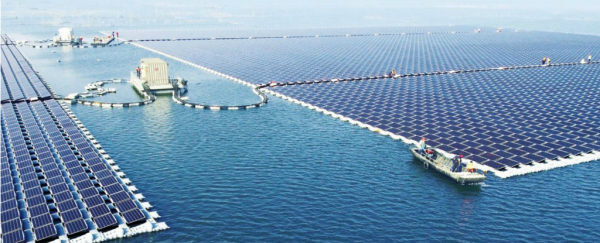The world's largest floating solar power plant is now online in China. Built by Sungrow, a supplier of PV inverter systems, the 40MW plant is now afloat in water 4 to 10 metres deep, and successfully linked to Huainan, China's grid.
The placement was chosen in large part because the area was previously the location of coal mining operations, and as a result, the water there is now mineralised and mostly useless.
The lake itself was only formed after years of mining operations, the surrounding land collapsed and created a cavity that was filled with rainwater.
Floating solar plants are advantageous because they put otherwise useless water and land to good use, and the water naturally cools the system and the ambient temperatures, improving generation and limiting long-term damage from heat.
They also avoid taking up space in densely populated regions, which is especially an issue in China; the country is currently home to more than 100 cities with populations of at least one million people each.
Finally, the floating PV arrays, customised to work efficiently despite higher levels of humidity, prevent the evaporation of fresh water.
Although it was once among the worst offenders worldwide in the realm of carbon emissions and climate change, China has turned the page in a serious way.
Now, it has become a world leader in the adoption of renewables in its quest to lead the way toward a greener, more sustainable future.
This kind of dedication is what each country needs to commit to. As climate change progresses, we continue to see negative trends and changes; the last three years have all set horrifying temperature records.
The future of humanity is directly tied to the future of renewables.
Fortunately, innovations like the floating solar plant prove that there are almost endless ways to approach the problem in a practical, effective way.
This article was originally published by Futurism. Read the original article.
